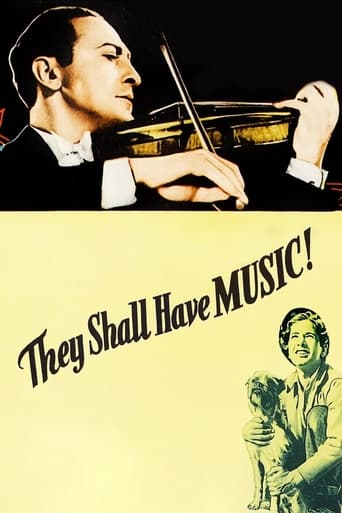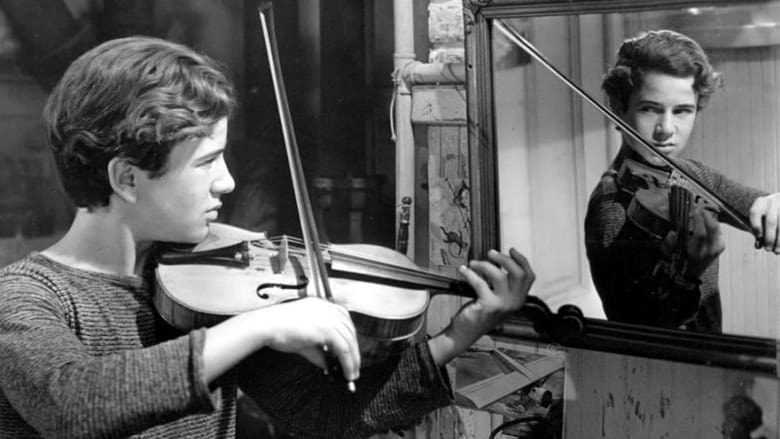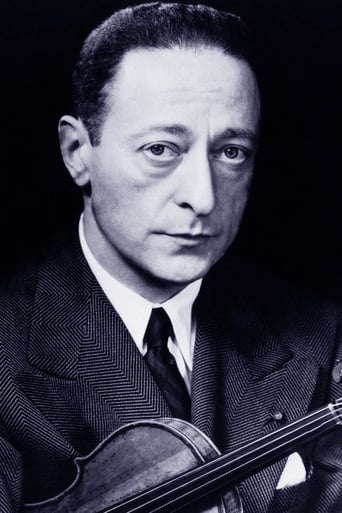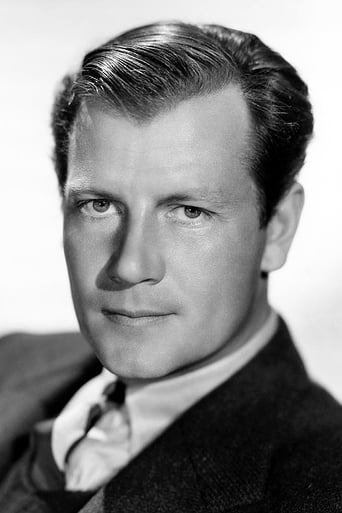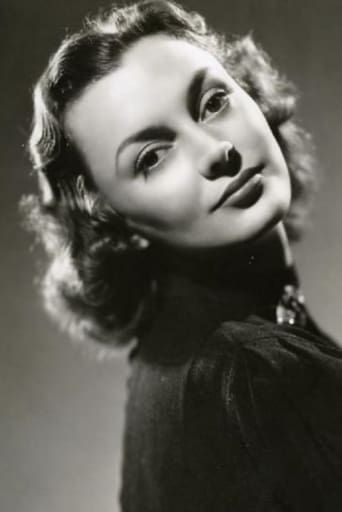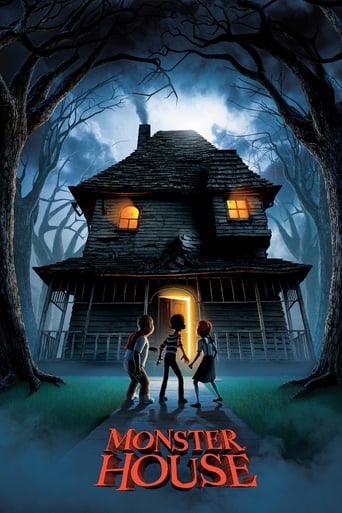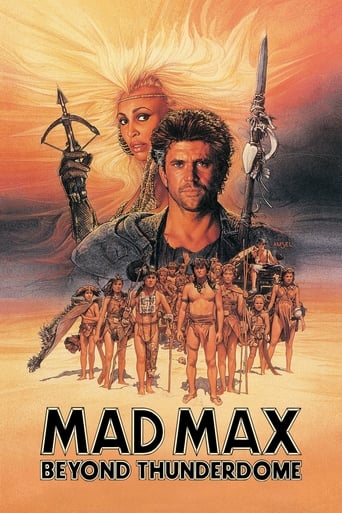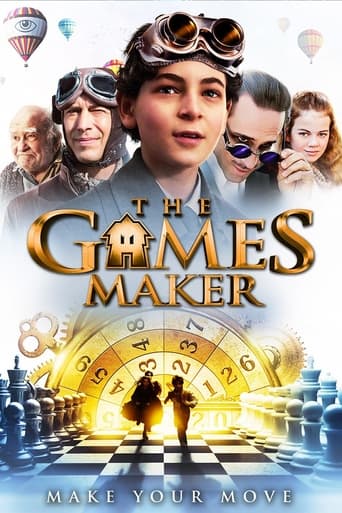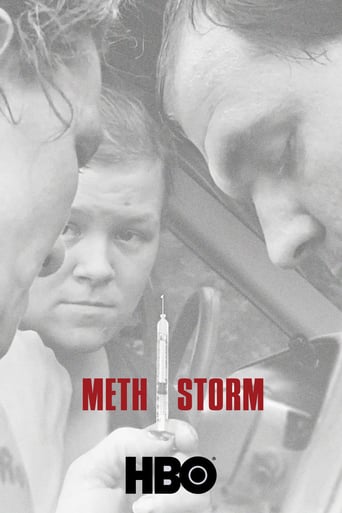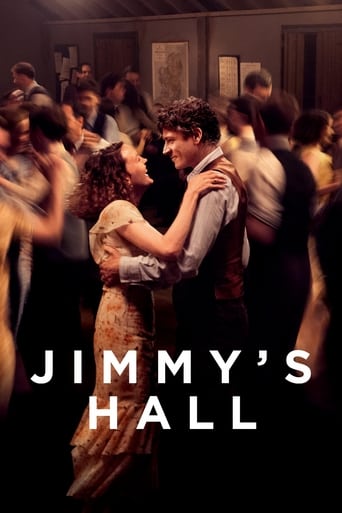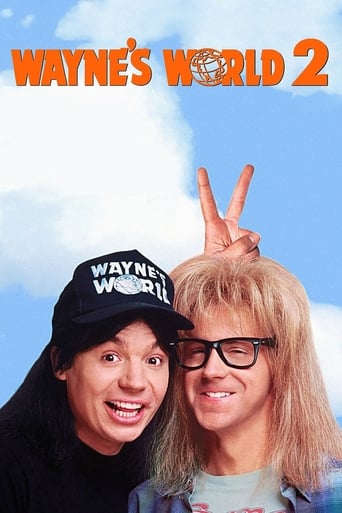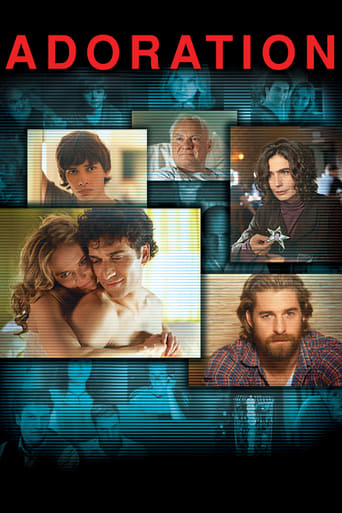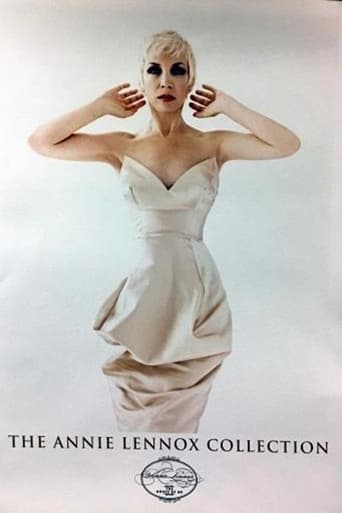They Shall Have Music (1939)
The future is bleak for a troubled boy from a broken home in the slums. He runs away when his step father breaks his violin, ending up sleeping in the basement of a music school for poor children.
Watch Trailer
Cast


Similar titles
Reviews
Very very predictable, including the post credit scene !!!
Wonderful Movie
So much average
For all the hype it got I was expecting a lot more!
THEY SHALL HAVE MUSIC (United Artists, 1939), directed by Archie Mayo, became producer Samuel Goldwyn's tribute to classical music through the eyes and talent of young children. Headlined by Jascha Heifetz (1901-1987), a celebrated violin virtuoso, with name above the title, ahead of renowned screen veterans Joel McCrea, Andrea Leeds and Walter Brennan, this production might have served as a biographical subject on Heifetz with him enacting his own story up to his legendary status. Instead, it's something completely different, dedicated "To the many schools throughout the world --- devoted to the development and encouragement of great talent among the children of the poor." The main character of the story isn't any of the actors mentioned, but the fourth billed Gene Reynolds, who actually carries the 102 minute film from start to finish.As Frankie Miller, he's a tough New York City slum kid living with his kindhearted mother, Jane (Marjorie Main) and strict stepfather, Ed (Arthur Hohl). He's also leader and treasurer of a group of boys, Limey (Terry Kilburn), Rocks (Walter Tetley) and Fever (Chuck Stubbs), spending much time on the streets getting in trouble with authorities and neighbors. One evening, Frankie and Limey find two unused tickets to a Jascha Heifetz concert. Unable to pawn off the tickets, they attend the recital instead. With Limey bored to tears, Frankie takes much interest in Heifetz. After returning home, he acquires his late father's fiddle to develop his musical talent imitating Heifetz. A heated argument with his stepfather follows, whom he nearly attacks, causing Frankie to run away and avoid being arrested and taken to reform school. Very much on his own, carrying a violin case for food and supplies, the boy earns money shining shoes by day and sleeps in an abandoned car by night. Things start to look better for Frankie after befriending a stray dog he names "Sucker," later leading him into a Third Street music school for poor children. Finding "Frankie Smith" to have an ear for music, and no place to stay, Professor Lawson (Walter Brennan, in fine characterization), the school's founder, offers the teenager room and board and acceptance as one of his pupils. Because the school is six months behind on their rent, and unable to survive on donations alone, Mr. Flower (Porter Hall), whose associate, Peter McCarthy (Joel McCrea), who never bothered to collect due to his love for Lawson's daughter, Ann (Andrea Leeds), threatens to close down the school. Through Frankie's good intentions, he makes efforts to save the school by trying to speak to Mr. Heifetz at his home. Situations become more complex when Heifetz's $70,000 Stradivarius is reported missing and now in Frankie's possession.In a sense of being an original story, the screenplay tends to borrow portions from Goldwyn's own DEAD END (1937), using tough kids from New York's poor district as main attractions, and Universal's ONE HUNDRED MEN AND A GIRL (1937), with talented teenage singer (Deanna Durbin) helping her father's unemployed musicians by getting the sponsorship of musical conductor Leopold Stokowski. Whether intentional or not, THEY SHALL HAVE MUSIC does get by on its own merits, especially with interludes to fine classical pieces consisting of: Peter Tchiakowsky's "Andante Cantabile" from "String Quartet No.1 in D, Opus 11"; "Introduction and Rondo Capriccioso, Opus 28"; Frederic Chopin's "Nocturne in B Flat Minor, Opus.9, No.1"; "Caro Nome" from Giuseppe Verdi's "Rigoletto" (beautifully sung by Jacqueline Nash); Wolfgang Mozart's "Eine Kleine Nachtmusik" "Hora Staccato" and "Estrellita" "The Barber of Seville," "The Minute Waltz in D Flat" (piano played Mary Ruth); "Symphony No.4 in A ('Italian'), Opus. 90," "Casta Diva," and "Violin Concerto in E Minor." Others participants to these compositions aside from Heifetz include the California Junior Symphony Orchestra.In spite of its somewhat contrived screenplay held together through a series of circumstances, THEY SHALL HAVE MUSIC is as entertaining as it is underrated. With McCrea and Leeds having little to do, with Heifetz having even less by way of acting, Gene Reynolds, a fine young actor with sincerity and conviction, on loan out assignment from MGM, never developed into a top teen idol as did box office attraction Mickey Rooney. Nearly forgotten as an actor, Reynolds did become better known in later years as director and producer of TV shows, especially the long running, MASH (CBS, 1972-1983). Tommy Kelly, lead boy actor in 1938's "Adventures of Tom Sawyer," and "Peck's Bad Boy at the Circus," is reduced to minor role as Willie, the kid whom Frankie hounds for membership dues for the club.With this being an overlooked Goldwyn production, THEY SHALL HAVE MUSIC did get plenty of exposure over the years, through its 1986 video cassette distribution; cable television broadcasts on American Movie Classics (1992-94) and Turner Classic Movies (where it premiered March 30, 2007). Anyone seeking for relatively unknown movie, this is one to consider, along with another similar themed production of MUSIC OF THE HEART (Miramax, 1999) featuring Meryl Streep. (***1/2)
I really enjoyed this movie, and I'm not a classical music fan. The story of the tough street kid discovering classical music and changing his ways was great to watch, without being sentimental or too unbelievable, although some details had me scratching my head (Frankie and his dog can live in the basement of the school without any of the students or teachers discovering him? Where did he eat? Bathe? Did he ever get a change of clothes? What did he feed his dog? The owner of the school didn't think it was important to notify the police about finding a missing boy, but let him live in the basement indefinitely? :-) ). But we can let such unrealistic details slide and just enjoy the touching, fun, and slightly suspenseful (for me, anyway) story and wonderfully talented children.I loved the scene with the mothers standing shoulder to shoulder on the steps barring the policemen from entering the school: I doubt they would get away with that nowadays. And I liked the nice touch about the boy Frankie stole from turning the tables on him (although that never really went anywhere), and Frankie's friends helping him out in the end.All in all, a great movie for everyone!
I caught a clip of this film with Heifetz's performance of Tchaikovsky's Violin Concerto on YouTube - which was phenomenal. Watching the performance from the wings with Andrea Leeds was an actor who looks exactly like Frank McHugh (with mustache), but there's no mention of him in the cast, or of this appearance on his biography page. I assume he was an extra even though he was rather prominent in this single(?), non-speaking appearance in the film. Can anyone confirm if it was him, one way or the other?Does anyone know if this movie is available on VHS or DVD? I remember seeing it, I believe, on TV, but I'm not certain as to whether I watched a clip of it in a documentary biography of Heifetz, or saw the film, itself.
For many years, Samuel Goldwin tried to bring his friend Jascha Heifetz to the screen. One evening when Goldwyn and his wife Frances were having dinner with Heifetz and his wife, silent screen star Florence Vidor, Goldwyn proposed that Heifetz star in a movie. After some persuasion, Heifetz agreed, on the condition that his acting be kept to a minimum. And the movie, originally titled "Music School" was born.The story itself is rather stock: A streetwise boy (Gene Reynolds, who is best known as the producer of "M*A*S*H"), runs away from home and ends up at a financially troubled music school run by Professor Lawson (Walter Brennan). While attempting to raise funds for the school, the boy and some other kids happen across Heifetz at Carnegie Hall. After much ado, Heifetz ends up appearing at the school concert and sponsoring the school. The story, while predictable,is surprisingly well written, although the film contains several minor gaffes where different scenes were patched together, the most obvious being the young cellist who is sent out of the orchestra room on an errand and is seen sitting in the orchestra a few seconds later.What is not surprising is how good the acting is. As was customary for studios then, the studio surrounded the inexperienced star with veteran talent: Brennan, Joel McCrea, Andrea Leeds, Porter Hall, Marjorie Main (later of Ma and Pa Kettle fame), Arthur Hohl, Paul Harvey, and a Who's Who of character actors. Actress Diana Lynn and singer/actress Kaye Connor made their (uncredited) debuts in this film, as did longtime Nelson Eddy singing partner Gale Sherwood (as Jacqueline Nash). Child veteran actors Reynolds, Walter Tetley and Terry Kilburn also appear.Goldwyn hired the Peter Meremblum Symphony, a highly regarded youth orchestra from the Los Angeles Area, to appear in the film. Most of the kids in the orchestra weren't actors, but they were excellent musicians, as good as professionals (which many of them later became). Many of the kids in the orchestra went on to noteworthy careers: Kaye Connor and Diana Lynn both starred in the theater and movies, Richard Berres was a producer and director, Mitchell Lurie founded a well-known music supply company, Elliott Rapaport went on to be a prominent cardiologist, Lewis Elias was a band leader, Thomas Facey a conductor with different symphonies, Channing Robbins a prominent instructor at the Julliard School, his sister Joyce Robbins an instructor witn SUNY Stonybrook, and many of the kids in the orchestra pursued musical careers with major symphony orchestras.While Heifetz's acting was kept to a minimum, his salary wasn't. He commanded $70,000 for seven weeks. When some scenes had to be re-shot at a later date, he got an additional $50,000 for another four weeks. What thankfully wasn't kept to a minimum was his musical output. Composer Alfred Neumann (who was once a Meremblum Orchestra conductor) handled the scoring. Heifetz performs the "Introductionne and Rondo Capriccioso" by Camille Saint-Saens, his own arrangement of Manuel Ponce's "Estrellita" (with an off-screen Teddy Saidenberg accompanying), Dinicu's devilishly difficult "Hora Staccato" (from a Vitaphone recording, with Emanuel Bay at the piano), an excerpt from Tchaikovsky's "Melody", an excerpt arranged for violin solo from Tchaikovsky's well-known "Adante Cantabile" from his opus 11 string quartet (played during the opening credits at the beginning of the movie), and the final movement from Felix Mendelssohn-Barthody's E Minor Violin Concerto. During all of these performances, there are many closeups of Heifetz's performing, including some very close shots of his fingering and bowing, something that would be of value to violinists desiring to study his technique.The Meremblum orchestra also shines here, performing the arias "Caro Nome" by Verdi and "Casta Diva" by Bellini, (both with Sherwood singing ), an arrangement of the overture from Rossini's "Barber of Seville", a short excerpt from Mozart's "Eine Kleine Nachtmusik", and the previously-mentioned Mendelssohn concerto (with Heifetz). Diana Lynn can be heard in the background of one scene, performing part of Chopin's Nocturne in B-flat Minor, and a five year old Mary Ruth performs Chopin's popular "Minute" Waltz.All in all, this is an excellent movie. AMC showed this regularly up until early 1992. I haven't seen it on television in recent years, but copies of it are not difficult to obtain. If you have the chance, I highly recommend that you view the movie.

